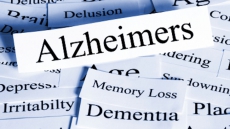Ancient civilisations had a strong musical tradition, which is present in all cultures today. However, music is now understood to be essential to overall health and wellbeing. Our brains release dopamine and serotonin when we listen to energetic, enjoyable music, which makes us feel happy. On the other side, quiet music encourages peace and relaxation. When employed by experienced and skilled experts, music therapy is an evidence-based, efficient, and safe method of treatment that is used to treat people who require mental healthcare.
A music therapist is a licenced healthcare professional who uses music therapy to treat a person's physical, emotional, cognitive, and social needs, according to the American Music Therapy Association. Numerous emotional effects that music has on people have been demonstrated by studies. The following are some advantages of music therapy for general mental health:
Reduces stress
Many of us prefer to plug in our headphones to listen to our favourite songs before going to bed after a long day. This helps in reducing your stress for the entire day and lets you fall asleep easily. Research has shown that listening to music reduces cortisol levels, which is a stress-causing hormone. Therefore, it comes as no surprise that music, a kind of art that is effective in reducing feelings of grief, can also be used to treat physical and mental health issues.
Helps with Anxiety
Music induces endorphins, also known as happy hormones, which calm the nervous system and help to ease anxiety symptoms. Everyone experiences anxiety occasionally, which is considered normal. However, the frequency and intensity of these symptoms are excessive for people who suffer from anxiety disorders. Since music has an immediate and strong influence over our emotions, it helps to calm the individual and improve emotional functions.
Improve symptoms of depression
When used in conjunction with conventional therapies like talking therapy, research demonstrates that music therapy is effective in reducing the symptoms of depression. Dopamine, a hormone released by music, and endorphins both contribute to the "feel good" emotions that people experience. It also helps in encouraging self-expression, improves social connection, and enhances the mood of patients.
Improves cognitive functions and delays Alzheimer's
Music therapy helps in improving the cognitive abilities of individuals and slows down the onset of dementia among the elderly. It has a high level of efficacy among Alzheimer's patients. People with Alzheimer's disease and other forms of dementia may benefit emotionally and behaviourally from singing or listening to music, according to research. Musical memories are not disrupted in Alzheimer's disease because key brain areas linked to musical memory are relatively undamaged by the condition.
Promotes Emotional Wellness
Music therapy has long provided comfort to many who struggle with mental illness. If you or a family member/friend is experiencing anxiety, despair, or low self-esteem, going for music therapy can help. Music helps people feel more confident, more relaxed, and more emotionally healed. Additionally, music can help those who have endured traumatic events and can aid people in managing pressure and stress.
Music therapy can be a beneficial and pleasurable way to lessen the symptoms of many ailments, including depression, mood swings, and anxiety, even if it cannot treat any mental health conditions. Through music therapy, people can communicate their feelings and experiences in a special and approachable way. People have listened to music for a very long time because it can have a good effect on their moods and emotions. Music therapy has a wide range of other benefits in addition to helping with mental health difficulties, such as providing a creative outlet, strengthening education and cultural awareness, and improving cognitive skills like memory.
Photo courtesy of IStock.



.jpg)


